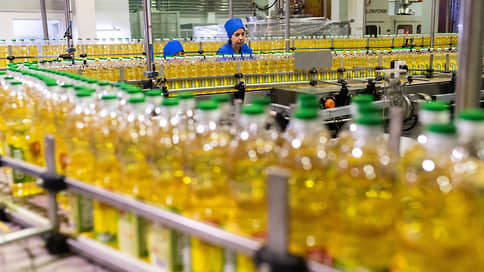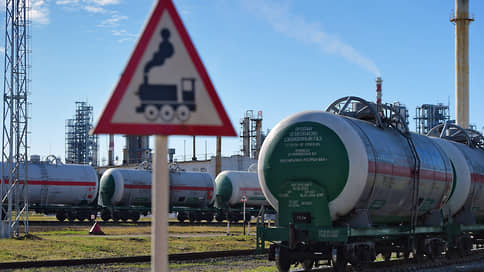The supply of vegetable oil for export has lost profitability

In the first quarter of 2025, Russia reduced the export of vegetable oils by 27% a year by the year, while the most pronounced decline was for sunflower oil. The profitability of its exports became negative due to the increase in the cost of the sunflower by 66%, high duties and the strengthening of the ruble. As a result, this forces the company to reduce production. The conjuncture for rapeseed oil is better: deliveries abroad are growing by introducing one hundred percent duties on Canadian products.
The export of vegetable oils from Russia in January -March of 2025 amounted to 1.46 million tons. This is 27% less than a year by the year, calculated in the consulting agency Oleoscope. Sunflower oil supplies decreased by 38% year by the year, to 909 thousand tons. Soyeva lost 27%, up to 154 thousand tons. Compensated for the total decrease in an increase of 29% of the export of rapeseed oil, to 391 thousand tons in January -March. In the Civil Code, they say that in January the export of sunflower oil decreased by 7%year, in February – by 55%, in March – by 47%. The fall can be traced after growth. In September -December 2024, oil exports as a whole grew by 20% year by year, follows from Oleoscope data.
The drop in the export of vegetable oils is observed due to the reduction of 20% of the processing of the year by the year, the Oleoscope is noted.
The decline is associated with the negative margin processors due to the disparity of purchase prices for sunflower and export revenue. The Executive Director of the Oil and Clean Union Mikhail Maltsev says that the profitability of sunflower oil exports in February was at minus 23%. Typically, the value is in the positive zone, amounting to 5–7%, they say in Oleoscope.
According to the “Council of Ministers”, the cost of the sunflower in the domestic market in early April amounted to 39.9 thousand rubles. per ton. By the year, a year has grown by 66%, from the beginning of September – by 27.2%. The OTC export index of sunflower oil NTB AO NTB at the beginning of April amounted to $ 1.16 thousand per ton. A year by the year, the value added 48.2%, by September – 27.2%. The growth of export prices was not able to compensate for the increase in the cost of raw materials, Mr. Maltsev believes. He led to an increase in duties, which also negatively affected the margin of exporters. The indicator was also affected by the strengthening of the ruble.
Andrei Kucherov, Director of the Center for Competence in the agricultural sector “Rexoft Consulting”, draws attention to the fact that manufacturers of sunflower oil were preparing to deteriorate the conjuncture: they took out a third of the export volume for 2024 in the fourth quarter. “The imperfection of the mechanism for calculating the fee led to the fact that the manufacturers had a“ window ”for excessive export before raising,” he said. This additionally warmed up the demand for sunflower at the end of the year.
The General Director of the Steppe agricultural holding Andrei Nezhko says that the sunflower in the domestic market was actively valued in the second half of the year due to the growth of demand from the processors. But now, according to him, he began to decline.
The head of the Lazarevskoye agricultural holding Christina Romanovskaya does not consider it appropriate to connect the drop in oil export with an increase in the price of the seed. “Sunflower, rapeseed, soy have always been high -marine cultures, they are difficult to grow, but the prices for them are spasmodic,” she explains.
Mrs. Romanovskaya notes that the prices of oilseeds are always rising at the beginning of the year: many farmers and farms sell the crop immediately after cleaning to purchase raw materials for the next agrarian year. But processors, on the contrary, are not inclined to form stocks: due to the high cost of borrowed funds, they work with volumes that are purchased in the moment, explain to Oleoscope.
A sharp drop in profitability forced the company to reduce the volume of production: usually two -thirds of vegetable oil made in Russia are exported, Mikhail Maltsev says. The press service of the EFCO explained that earlier, due to negative marginality, the activities of two oil-extraction plants of the company in the Krasnodar Territory, Kropotkin and the village of Tbilisskaya were suspended. The decision is temporary to favorable market conditions, the company notes. Cyril Melnikov, Director of Marketing of the Civil Code, states that the embezzlement of the market has exported for processors with an illiquid direction. “The industry is experiencing this kind of crisis for the first time in ten years,” he says.
Oleoscope believes that the export of sunflower oil will continue to contract: duties and strengthening of the ruble reduce the competitiveness of the domestic product.
Eduard Zernin, Chairman of the Board of Directors of the Bio-Ton agricultural corporation, notes that there are also no reserves for the farm reserves in the market. The expert expects that its cost will be stable before the end of the season: “The price change can only occur due to sharp currency fluctuations or the correction of world prices for sunflower oil.”
The conjuncture in the market of the second largest rapeseed oil is better. There is no shortage of raw materials on the market, says Mr. Kucherov. And its export is actively growing due to an increase in procurement from China. In March, the country introduced one hundred percent duties on rapeseed oil and a spray from Canada, acting as the main competitive Russia in this market. “If your own production does not grow in China, you can expect a further increase in demand for Russian rapeseed oil,” says Mr. Kucherov. The drop in soybean oil exports in the first quarter was dictated by a reduction in the volume of procurement by India. But the reserves in the country are ending, they notice in Oleoscope.








